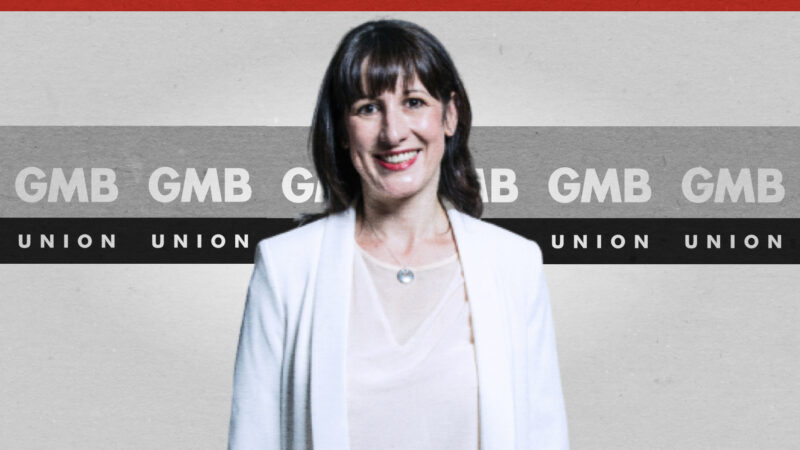
In 2019, voters across Yorkshire, the Midlands and the North East of England turned in their droves against Labour. The result was devastating. In order to recover our lost votes, Labour needs to develop a new coalition of low and middle income workers. The best way to start is to listen to people’s views about their working lives.
In a joint project with the GMB, I interviewed 21 workers from across Yorkshire in the union’s regional office in Wakefield. They worked across a range of sectors, from social care to retail to steel manufacturing. I asked them about the security of their work, the dignity it offers, what they valued in it and how their work has changed over time.
Today, we publish our report Everyday Work. The stories I heard were powerful, and they can help Labour better understand what we have lost, and so begin our journey back to power. In the 1970s and 1980s, industries and communities across the UK were devastated by deindustrialisation, technological change and the off-shoring of labour. These industries have never been replaced as a source of secure work, identity and common purpose.
We cannot bring back the world of work that existed 50 years ago. That means we need to talk about the kind of work that exists today, and be ambitious about developing and harnessing jobs in the new economies of green technologies, artificial intelligence and automation.
But perhaps most of all, it means focusing on what I call the ‘everyday economy’. This covers low pay sectors like care, retail, food processing, and many of our public services, which sustain daily life and provide large numbers of jobs in every part of the country. Everyone participates in the everyday economy as workers, service users and consumers.
In many places, public services are the glue that binds people together. But work is often undervalued and characterised by poor pay and insecurity. Many workers are proud of the difference they can make to people’s lives. For example, the care home worker on the minimum wage who told me she bought an elderly resident her favourite food with her own money because the care home wouldn’t provide it. Society undervalues their work. Several workers I spoke to were acutely conscious that, while already being overworked and underpaid, their good will is being abused.
Employment is at its highest level today since records began in 1971. Real pay growth has begun to make a tentative recovery. This is welcome progress but it disguises the reality of work for many people. All too often, workers suffer from low pay, high insecurity, poor training and progression, and poor work-life balance. Responsibility for the risks of employment such as variable demand, physical or mental ill health, or having children, has been transferred from employers to employees.
The transformation of work is central to the story of Labour’s decline and it must be central to how our party rebuilds a winning electoral coalition and creates a strong and fair economy. To win back the trust of voters, Labour must put work and the voices of workers at the heart of our politics and our industrial strategy.
The pamphlet outlines a range of key priorities for improving the reward and recognition of work, providing greater security, giving power and autonomy to workers, and extending trade union membership through these sectors. Some of these are ideas Labour has long championed, like universal childcare, lifelong learning, and getting workers on company boards. But it also includes new policy ideas targeted specifically at the everyday economy.
For one, this could include the creation of national colleges for professions such as care work, to boost the prestige of essential but undervalued workers, and to give them a central role in the development of skills and best practice. Why shouldn’t there be a Royal College of Care Work like the Royal College of Nursing?
The industrial strategy Labour develops needs to put the everyday economy at its heart; boosting pay, productivity and workers voice. It is every bit as important as championing the high-tech industries of the future. Andy Haldane, the Bank of England Chief Economist argues that a focus on relatively modest improvements in productivity within the ‘long tail’ of less productive firms can be every bit as important as huge leaps made by the small number of ‘frontier’ firms. It can certainly help those who work in those sectors most.
And finally, local and central government should champion the idea of ‘social licensing’, whereby companies coming into contact with the state – whether in the form of contracting, procurement, or seeking planning permission for a supermarket or distribution centre are expected to sign up to a set of standards in the form of environmental requirements, labour standards, progressive taxation, and other relevant community objectives. This can give communities a greater say in the shape of their local economy, drive up standards, and make companies more responsive to the needs of the local people their businesses rely upon.
In a divided country, the everyday economy is a unifying force. It underpins the wider economy and it provides the bonds that bind people together in society. By telling a story about improving work in the everyday economy, Labour can rebuild its coalition and bring together low and middle income workers in the towns and cities, and across the regions and the nations of the UK.




More from LabourList
SPONSORED: ‘Industrial hemp and the challenge of turning Labour’s priorities into practice’
‘A day is a long time in politics, so we need ‘action this day’’
Strong support for child social media ban among Labour members, poll reveals